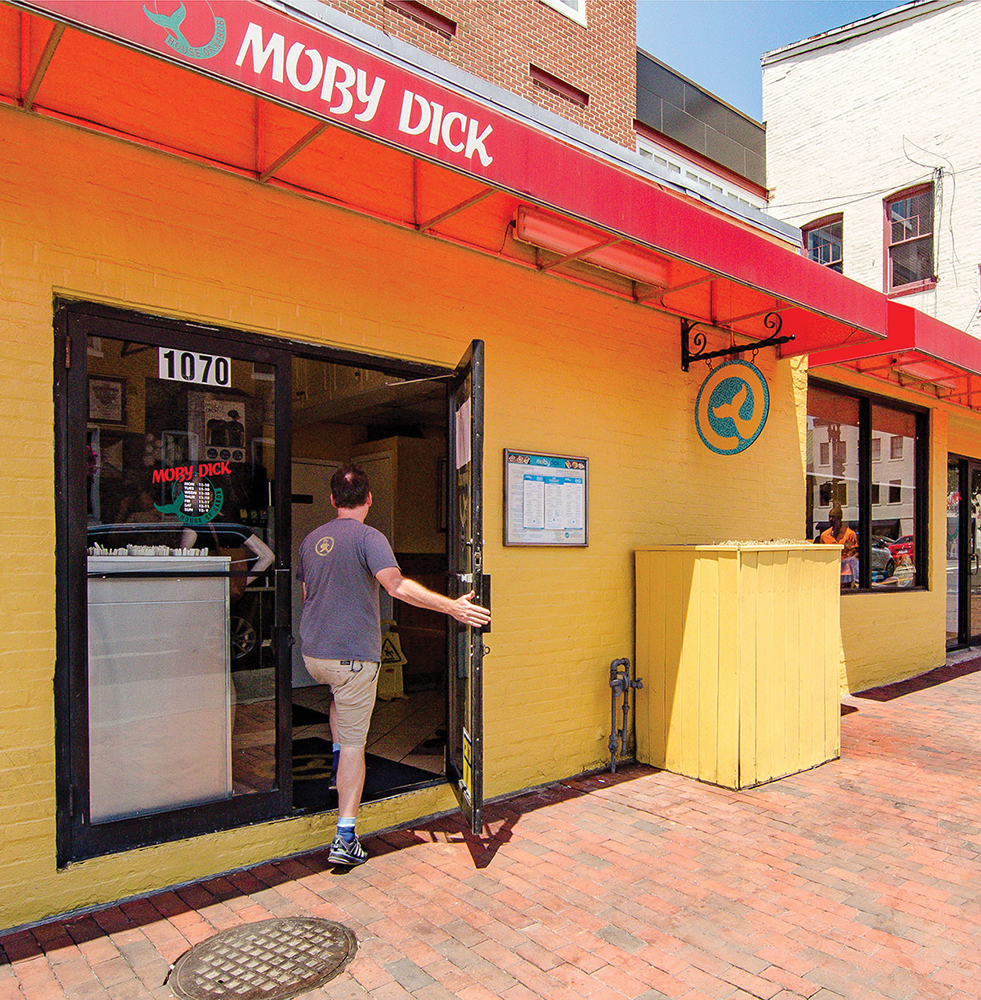D.C., Maryland and Virginia’s health departments have linked at least 33 recent cases of salmonella to hummus served at multiple Moby Dick House of Kabob locations.
Currently, the Maryland Department of Health reports 23 confirmed cases of salmonella, the Virginia Department of Health reports nine cases, and the D.C. Department of Health reports at least one case. The cases have been reported since Sept. 10 in Maryland, according to the MDH.

After Moby Dick voluntarily suspended hummus sales in September, the MDH cleared the restaurant’s Hyattsville, Md., plant to resume hummus production Oct. 4.
Moby Dick is a Persian restaurant with a Georgetown location at 1070 31st St. NW, as well as 24 other storefronts across Maryland, Virginia and D.C. The manager of the Georgetown location declined to comment, and the company did not respond to multiple requests for comment.
The company claims that no evidence supports a direct correlation between its hummus and the cases of salmonella, stating that tests performed by MDH on the hummus looking for the disease came back negative, according to WTOP.
Eight of the nine initial customers who came down with salmonella reported eating the hummus, MDH said in a Sept. 26 news release. The hummus is still being investigated as a possible cause, according to MDH spokesperson Maureen Regan.
“Maryland Department of Health has not excluded Moby Dick House of Kabob hummus as the source of this salmonella outbreak,” she wrote in an email to The Hoya.
The plant where Moby Dick produces its hummus has been inspected, improved and cleared to resume operations, Regan said.
“After a thorough inspection and review of food production practices by Moby Dick House of Kabob, and implementation of required corrective actions, the MDH Office of Food Protection approved Moby Dick House of Kabob to resume the manufacture of hummus,” Regan wrote.
The University of Maryland, College Park, has a Moby Dick restaurant located in a campus food court. Since beginning an investigation in late September, the university has confirmed 13 salmonella cases, according to The Diamondback.
Salmonella is a foodborne illness caused by infection of the salmonella bacterium that can be spread by both eating contaminated food and from person to person contact. Symptoms usually appear within six hours to four days, according to MDH. These symptoms can include diarrhea, fever, and abdominal cramps, typically lasting four to seven days. Hospitalization from salmonella is possible among children, the elderly and individuals with weakened immune systems.
The process for confirming a case of salmonella linked to Moby Dick House of Kabob is thorough, according to Katherine McCombs, foodborne disease epidemiology program coordinator at VDH.
“A confirmed case means someone who certainly became ill with the symptoms of salmonella, who was exposed to the restaurant, and had a stool sample submitted that was tested for salmonella and further tested with a process called whole genome sequencing, and that was also positive and related to the other cases,” McCombs said in an interview with The Hoya.
Other probable cases of salmonella exist in Virginia but have not yet been confirmed by VDH tests.
“There have been a number of probable cases, and those are cases that would have had the symptoms of salmonella and would have had the exposure but probably did not have lab testing completed,” she said. “That number is still fluctuating.”
McCombs also emphasized that salmonella outbreaks are not distinct to Moby Dick House of Kabob.
“Every restaurant can have problems and every restaurant has the ability to practice food safety and reduce the possibility of foodborne illness,” she said. “Salmonella is one of the most common bacterial foodborne illnesses. In Virginia we’ll have one to two thousand cases a year.”
The spread of salmonella is preventable, though, and McCombs recommends frequent hand-washing and practicing food safety, especially with chicken and eggs.
“I just really want to reiterate that if you feel sick with the symptoms of diarrhea, vomiting, fever, go to the doctor and submit a stool sample.” she said. “Washing your hands is the best way to prevent getting an ill or prevent passing an illness onto someone else.”





















Filozofia • Feb 18, 2021 at 10:22 pm
I was just doing some surfing on my Nokia Phone during my spare time at work , and I happened across something I thought was intriguing. It linked over to your site so I came over. I cant really figure out the relevance between your site and the one I came from, but your site good none the less .